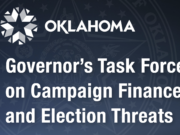BY EMAIL (comments@azcleanelections.gov)
Arizona Citizens Clean Elections Commission
Attn. Alec Shaffer
1616 W. Adams, Suite 110
Phoenix, AZ 85007
Re: Comments regarding proposed changes to Ariz. Admin. Code R2-20-109(F)
Dear Commissioners:
The Center for Competitive Politics (“CCP”)[1] submits these comments in response to the Commission’s May 14, 2015 proposed changes to its rules purporting to regulate independent expenditures and political committees in Arizona. CCP shares the Arizona Secretary of State’s strong concerns about the Commission’s lack of statutory authority to regulate these issues. Nevertheless, CCP focuses its present comments on the proposed rules’ unconstitutional vagueness and overbreadth under the First Amendment.
While vague regulations must be avoided as a general matter,[2] it is especially essential that regulations concerning political speech be as precise as possible. As the U.S. Supreme Court has stated, “[W]here a vague statute ‘abut[s] upon sensitive areas of basic First Amendment freedoms,’ it ‘operates to inhibit the exercise of [those] freedoms.’ Uncertain meanings inevitably lead citizens to ‘steer far wider of the unlawful zone . . . than if the boundaries of the forbidden areas were clearly marked.’”[3] Additionally, unless there is a “‘substantial relation’ between the disclosure requirement and a ‘sufficiently important’ governmental interest,” a regulation burdening political speech with reporting requirements is unconstitutionally overbroad.[4]
Even if the Commission has the legal authority to enact the proposed changes to Ariz. Admin. Code R2-20-109(F) with regards to independent expenditure reports and political committees (which, as the Secretary of State argues, the Commission does not have), the proposed rules still fail on account of their vagueness and overbreadth.
First, the Commission’s proposed rule is unclear as to whether sponsors of independent expenditures would be required to report on the same basis as political committees. The proposal purports to require sponsors of independent expenditures to “comply with the requirements of [Ariz. Rev. Stat.] § 16-913.”[5] That section of the statute sets forth the reporting obligations for political committees, which are required to file ongoing periodic reports and special pre- and post-election reports. If the Commission’s intent is that all sponsors of independent expenditures must register and report as political committees, then its rules should say so clearly and explicitly.
The reporting obligations for political committees are not only frequent, they are also substantively burdensome. Political committees must report detailed summaries of all of their contributions and disbursements, as well as itemized contribution and disbursement information, including the name of each individual who has given more than $50 to the committee for an election.[6] If the intent of the proposed rule is, in fact, to require independent expenditure sponsors that are not political committees to report as political committees, the proposal is unconstitutionally overbroad.[7]
Second, the Commission’s proposed rule for determining whether an entity has the “primary purpose” of being a political committee is unintelligible, and could be read in any number of ways.[8] Under the most plausible reading, the proposal appears to require an entity’s “primary purpose” to be determined over the course of an “election cycle.”[9] The statute defines an “election cycle” as “the period between successive general elections for a particular office.”[10] Because the terms of a “particular office” vary in Arizona,[11] and because the proposed regulations also require consideration of activity related to initiatives and referenda, as well as recall and retention elections, it is impossible to determine which election cycle is to be applied in determining an organization’s “primary purpose” at any given time.
Even if the “election cycle” concept were to be given a fixed meaning, it is still overly broad to regulate a group as a political committee on such basis. As the U.S. Supreme Court has noted, “the distinction between discussion of issues and candidates and advocacy of election or defeat of candidates may often dissolve in practical application.”[12] The most salient issues tend to vary from one election to another, and thus an advocacy group focused on a limited number of issues may be more active during particular “election cycles” (however that term is defined) in which their issues feature most prominently than in other “election cycles.” That does not mean, however, that the group’s overall “primary purpose” is to affect the outcome of elections.
Relatedly, a legislative issue may arise suddenly, and citizens may wish to band together quickly to speak about that issue. The proposal to regulate as a political committee any entity that is formed during a legislative election cycle, or in the immediately preceding six months, if the entity makes expenditures or accepts contributions of $500 or more, unfairly favors established speakers and greatly impedes the formation of new groups.[13]
If a legislative issue is closely associated with particular politicians, a group that has just formed to address that issue should not be subject to greater reporting burdens than a preexisting group if both groups sponsor a few expenditures advocating for or against those politicians. The Commission’s proposal to treat new and preexisting groups differently, even if they engage in the same type of speech, violates a basic principle of fairness, as well as the First Amendment. As the U.S. Supreme Court has stated, “the First Amendment generally prohibits the suppression of political speech based on the speaker’s identity.”[14]
As the U.S. Supreme Court also has noted, “PACs are burdensome . . . expensive to administer and subject to extensive regulations.”[15] Thus, treating advocacy groups as political committees by evaluating their “primary purpose” only within the arbitrary and limited temporal snapshot of a single “election cycle,” or presuming that groups formed within certain time windows are political committees, as the Commission’s proposed rule would do, is unduly burdensome and overly broad. Instead, a more holistic approach is needed to determine an organization’s “primary purpose.”
For these reasons, CCP implores the Commission not to adopt the proposed rules.
Respectfully yours,
Eric Wang
Senior Fellow[16]
Center for Competitive Politics
https://www.ifs.org/wp-content/uploads/2015/06/2015-06-24_CCP-Comments-on-AZ-CCEC-rulemaking.pdf
[1] The Center for Competitive Politics is a nonpartisan, nonprofit 501(c)(3) organization that promotes and protects the First Amendment political rights of speech, assembly, and petition. It was founded in 2005 by Bradley A. Smith, a former Chairman of the Federal Election Commission. In addition to scholarly and educational work, the Center is actively involved in targeted litigation against unconstitutional laws at both the state and federal levels. For instance, it presently represents nonprofit, incorporated educational associations in challenges to state campaign finance laws in Colorado and Delaware and recently won a case in the Nevada Supreme Court. It is also involved in litigation against the state of California.
[2] See Grayned v. City of Rockford, 408 U.S. 104, 108 (1972) (“It is a basic principle of due process that an enactment is void for vagueness if its prohibitions are not clearly defined. Vague laws offend several important values. First, because we assume that man is free to steer between lawful and unlawful conduct, we insist that laws give the person of ordinary intelligence a reasonable opportunity to know what is prohibited, so that he may act accordingly. Vague laws may trap the innocent by not providing fair warning. Second, if arbitrary and discriminatory enforcement is to be prevented, laws must provide explicit standards for those who apply them.”).
[3] Id. at 109 (internal citations omitted).
[4] Citizens United v. FEC, 558 U.S. 310, 366-67 (2010).
[5] Proposed Ariz. Admin. Code R2-20-109(F)(6).
[6] Ariz. Rev. Stat. § 16-915.
[7] See, e.g., Wis. Right to Life, Inc. v. Barland, 751 F.3d 804 (7th Cir. 2014) (holding that Wisconsin’s regulation imposing political committee-like registration, reporting, and other requirements on all organizations that made independent expenditures was unconstitutional as applied to organizations not engaged in express advocacy as their major purpose).
[8] See proposed Ariz. Admin. Code R2-20-109(F)(12)(b).
[9] Other possible interpretations are: (1) An organization’s primary purpose may be determined over any period of time, but a “primary purpose other than influencing the result of any election” may be determined only over the course of an election cycle; (2) An entity must “maintain[]” records of its primary purpose, and the length of the recordkeeping requirement is for an election cycle; (3) Any entity must “maintain[]” a “[p]rimary purpose other than influencing the result of any election . . . during each election cycle,” which therefore would prohibit political committees altogether, as well as candidates’ campaign committees, party committees, and most political activity generally. The core difficulty with the proposed language is that the second sentence of R2-20-109(F)(12) does not seem to follow the first sentence in that paragraph and, when read in isolation, the second sentence does not make much sense.
[10] Ariz. Rev. Stat. § 16-961(B)(1) (emphasis added). The Commission’s regulations do not further define this term. See Ariz. Admin. Code 2-20-101.
[11] See, e.g., Ariz. Const. Art. 4, Pt. 2, § 21 (providing for two-year terms for state legislators) and Art. 5 §1 (providing for four-year terms for statewide elected officials).
[12] Buckley v. Valeo, 424 U.S. 1, 42 (1976).
[13] See proposed Ariz. Admin. Code R2-20-109(F)(12)(a).
[14] Citizens United, 558 U.S. at 350.
[15] Id. at 337. Although the Supreme Court was discussing specifically the regulation of PACs under federal law, the regulation of PACs under Arizona law is substantially similar. See, e.g., Ariz. Rev. Stat. §§ 16-902, -902.01, -902.02, -913, -915.
[16] Eric Wang is also Special Counsel in the Election Law practice group at the Washington, DC law firm of Wiley Rein, LLP. Any opinions expressed herein are those of the Center for Competitive Politics and Mr. Wang, and not necessarily those of his firm or its clients.














